Legacy
by Kelly Thompson
My mother always said
(Giving me a look)
“You’re just like my mother.”
I see Grandmother’s ghost
In the corner of my eye
At the supermarket again today
Rounding the bend of an aisle, she
Pushes her shopping cart in rage
Her wet heart calls – Escape! I follow her
Path among the produce; she steals a grapefruit
Offers me an illicit berry – “Here take it”
Mother washes a dish, sighs
“My mother was not domestic.”
Dries a plate, “You should never get married.”
Back at the supermarket, Grandmother runs, crazy
Through the aisle, throws jars of pickles, relish, capers
Crashing to the floor. She screams, “No more!”
I bend down among the vinegar, the rolling
Olives, pick up the red pimientos.
“You’re just like my mother,” she would say.
My mother, dusting the piano, looking off
In the distance, wistful.
The chill air prickles my arms, sleeveless
The condiment shelves empty, price tags
Intact as if to remind us of the cost
All the jars
Smashed – ketchup and mustard, salad oil, peppers –
Grandmother and I bend
Reaching for the same jagged shard of glass
Her eyes my mirror, I kneel
Before the shadow of her early death
Her aborted
Passion.
Colorado
Denver is the capital city of Colorado. My heart is the capital of a small frozen pond.
All of the “Beulah red” marble in the world went into the Capitol. It cannot be replaced.
Flower – Rocky Mountain Columbine (1899)
Left on my porch in Blue Jay, California for my 42nd birthday.
Colorado was admitted to the Union August 1, 1876. I was admitted to schools, hospitals, psych wards.
Tree – Colorado blue spruce (1939)
Hunkered down in Alaska, blue spruce between me and the neighbor.
Colo. is the abbreviation for the state. My mind abbreviated by grief.
Bird – Lark Bunting (1931)
Sorrow my sparrow, as soon as I left: a murder of crow, a kindness of raven.
The area of Colorado covers 104100 square miles. Circles I made in the snow.
Animal – Rocky Mountain Bighorn Sheep (1961)
Exposed on the cliffs the day I got up from the table. The world’s largest flat-top mountain is in Grand Mesa.
Colorado was the 38th State to be admitted to the Union. I admitted, at last, only to failure.
Gemstone – Aquamarine (1971)
At the western base of this ancient chain of granite peaks was once an inland sea. Still,
I kept trying to get out of the boat.
The three largest Cities in Colorado are Denver, Colorado Springs and Aurora. Minus 47 murdered in Denver.
Colors – Blue and White (1911)
I said yes to the stretched out hand and walked on water.
The Colorado State Motto is “Nil sine Numine,” translated as “Nothing without Providence”
And just it is that I should pay the rent.
Song – “Where the Columbines Grow” (1915)
I shall already have forgotten you when the river runs red.
Shape of a Song
Who stole it from me father?
Fear of the water is inborn in some.
Your great-grandmother was a witch. You’re just like her.
Her power lay in the words she controlled. She had a pack of wolves, a swarm of bees, a murder Of crows.
Father said she read his fortune in tea leaves but when she looked into Gene’s cup she turned, Refused to tell. She wanted a pair of silver shoes.
It’s a gift, she told him. You’d have to sell your ____ to the devil.
But even she was afraid of the dark.
The witch’s daughter told the great-grand-daughter how it would be. She sang her into the shape Of a song.
She lived so long that a little girl could outwit her.
Father would not spill the water though the creek ran high.
The Wicked Witch of the West was destroyed by water.
The place we would step into the current will not come again.
But first, she starved the Cowardly Lion.
In the wagon they carried their most prized possessions, a guitar and a fiddle.
The witch’s daughter rode shoeless.
The witch foretold that men would land on the moon.
She saw the writing on the wall.
She named their firstborn but they declined the gift.
They preferred a new rhythm.
In time and space, they gave their children something blotted, blank, something human,
Where before, a melting witch lay steaming on the floor.
Father, said the daughter, I still carry her bequest.
The remnants of fires lay banked around them.
You were born without a ____, he said. Consequent bastard, he said.
The silver shoes I have thrown in the ocean.
BIO
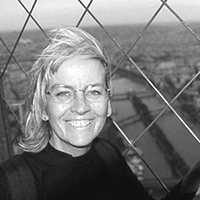 Kelly Thompson’s writing has been published in 49 Writers, Manifest Station, Metrosphere, Limp Wrist, and Reflections: Narratives of Professional Helping. She has won awards for her poetry from Writer’s Digest and was awarded funding to attend Key West Literary Seminar based on her short fiction. She is currently working on a memoir entitled Oh Darling Girl. Just as the narrator gets sober, one of her two barely adolescent daughters descends into addiction and rebels against her mother’s new found lifestyle of recovery. As the narrator struggles to save her daughter and face down a transgenerational legacy of violence, addiction, and shame, the lives of grandchildren hang in the balance and heartbreaking choices must be made. Kelly is also currently working on a chapbook of poetry focused on the themes of ancestry, transgenerational trauma, and legacy. Besides writing, Kelly is a psychotherapist who primarily works with soldiers returning from the wars in Iraq and Afghanistan, and their families. Kelly lives in Denver, Colorado, in the sunshine of the spirit. You can follow her on Twitter @stareenite.
Kelly Thompson’s writing has been published in 49 Writers, Manifest Station, Metrosphere, Limp Wrist, and Reflections: Narratives of Professional Helping. She has won awards for her poetry from Writer’s Digest and was awarded funding to attend Key West Literary Seminar based on her short fiction. She is currently working on a memoir entitled Oh Darling Girl. Just as the narrator gets sober, one of her two barely adolescent daughters descends into addiction and rebels against her mother’s new found lifestyle of recovery. As the narrator struggles to save her daughter and face down a transgenerational legacy of violence, addiction, and shame, the lives of grandchildren hang in the balance and heartbreaking choices must be made. Kelly is also currently working on a chapbook of poetry focused on the themes of ancestry, transgenerational trauma, and legacy. Besides writing, Kelly is a psychotherapist who primarily works with soldiers returning from the wars in Iraq and Afghanistan, and their families. Kelly lives in Denver, Colorado, in the sunshine of the spirit. You can follow her on Twitter @stareenite.

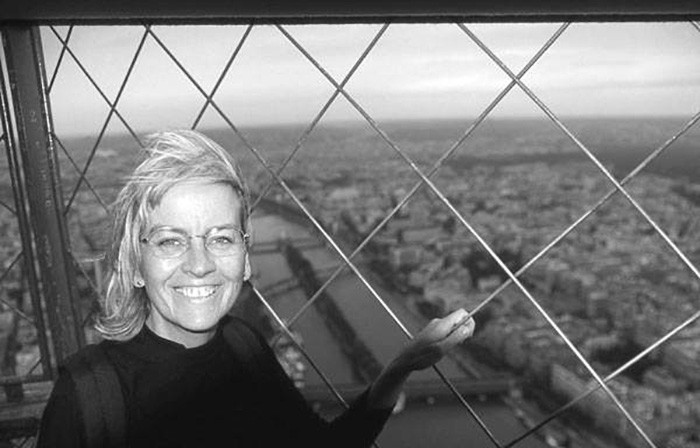
 Kelly Thompson’s writing has been published in 49 Writers, Manifest Station, Metrosphere, Limp Wrist, and Reflections: Narratives of Professional Helping. She has won awards for her poetry from Writer’s Digest and was awarded funding to attend Key West Literary Seminar based on her short fiction. She is currently working on a memoir entitled Oh Darling Girl. Just as the narrator gets sober, one of her two barely adolescent daughters descends into addiction and rebels against her mother’s new found lifestyle of recovery. As the narrator struggles to save her daughter and face down a transgenerational legacy of violence, addiction, and shame, the lives of grandchildren hang in the balance and heartbreaking choices must be made. Kelly is also currently working on a chapbook of poetry focused on the themes of ancestry, transgenerational trauma, and legacy. Besides writing, Kelly is a psychotherapist who primarily works with soldiers returning from the wars in Iraq and Afghanistan, and their families. Kelly lives in Denver, Colorado, in the sunshine of the spirit. You can follow her on Twitter @stareenite.
Kelly Thompson’s writing has been published in 49 Writers, Manifest Station, Metrosphere, Limp Wrist, and Reflections: Narratives of Professional Helping. She has won awards for her poetry from Writer’s Digest and was awarded funding to attend Key West Literary Seminar based on her short fiction. She is currently working on a memoir entitled Oh Darling Girl. Just as the narrator gets sober, one of her two barely adolescent daughters descends into addiction and rebels against her mother’s new found lifestyle of recovery. As the narrator struggles to save her daughter and face down a transgenerational legacy of violence, addiction, and shame, the lives of grandchildren hang in the balance and heartbreaking choices must be made. Kelly is also currently working on a chapbook of poetry focused on the themes of ancestry, transgenerational trauma, and legacy. Besides writing, Kelly is a psychotherapist who primarily works with soldiers returning from the wars in Iraq and Afghanistan, and their families. Kelly lives in Denver, Colorado, in the sunshine of the spirit. You can follow her on Twitter @stareenite.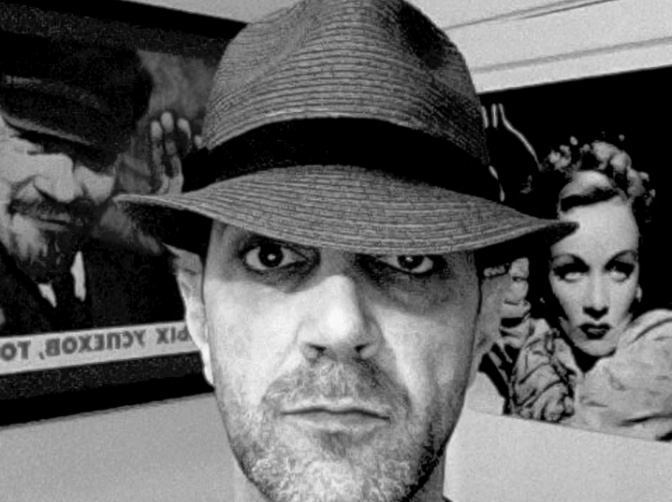
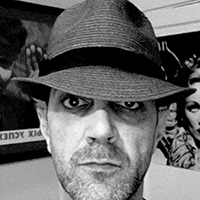 John Lowther’s work appears in the Atlanta Poets Group’s anthology, The Lattice Inside (UNO Press, 2012) and in Another South: Experimental Writing in the South (U of Alabama, 2003). Held to the Letter, co-authored with Dana Lisa Young is forthcoming from Lavender Ink in 2015. John also works in video, photography, paint, performance and other mediums as the need arises. He’s writing a dissertation to reimagine psychoanalysis had intersex and transgender lives been taken as foundational for understanding subjective possibility. He blogs as Lowtherpoet at WordPress.
John Lowther’s work appears in the Atlanta Poets Group’s anthology, The Lattice Inside (UNO Press, 2012) and in Another South: Experimental Writing in the South (U of Alabama, 2003). Held to the Letter, co-authored with Dana Lisa Young is forthcoming from Lavender Ink in 2015. John also works in video, photography, paint, performance and other mediums as the need arises. He’s writing a dissertation to reimagine psychoanalysis had intersex and transgender lives been taken as foundational for understanding subjective possibility. He blogs as Lowtherpoet at WordPress. Gerard Sarnat is the author of three collections, 2010’s HOMELESS CHRONICLES from Abraham to Burning Man, 2012’s Disputes, and September 2014’s 17s. He is now working on Patriarchs. Harvard and Stanford educated, Gerry’s set up and staffed clinics for the disenfranchised, been a CEO of healthcare organizations and a Stanford professor. For Huffington Post reviews, future reading dates and more, visit Gerard Sarnat.com. His books are available at select bookstores and on Amazon.
Gerard Sarnat is the author of three collections, 2010’s HOMELESS CHRONICLES from Abraham to Burning Man, 2012’s Disputes, and September 2014’s 17s. He is now working on Patriarchs. Harvard and Stanford educated, Gerry’s set up and staffed clinics for the disenfranchised, been a CEO of healthcare organizations and a Stanford professor. For Huffington Post reviews, future reading dates and more, visit Gerard Sarnat.com. His books are available at select bookstores and on Amazon.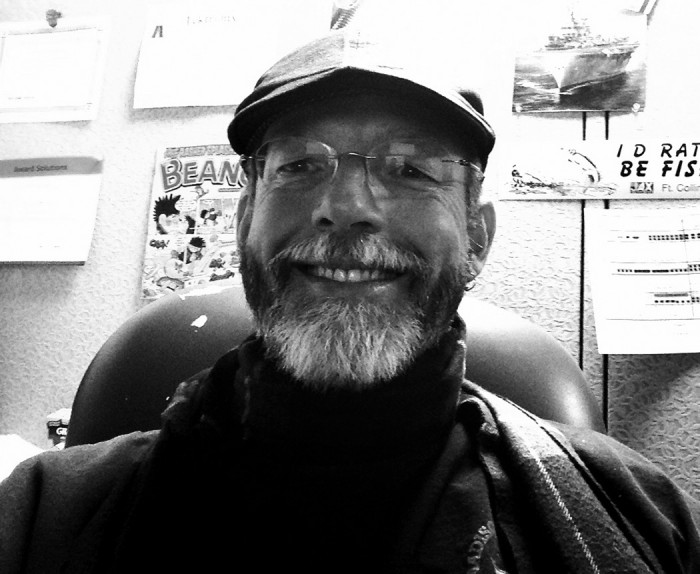
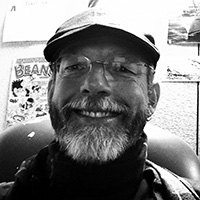 Kevin McCoy’s works have appeared in Forge, Wisconsin Review, Crate, Natural Bridge and several other journals. His collection “Tea in a Bowl” will be published by Unsolicited Press in January 2015.
Kevin McCoy’s works have appeared in Forge, Wisconsin Review, Crate, Natural Bridge and several other journals. His collection “Tea in a Bowl” will be published by Unsolicited Press in January 2015. John McKernan – who grew up in Omaha Nebraska in the middle of the USA – is now a retired comma herder / Phonics Coach after teaching for 41 years at Marshall University. He lives – mostly – in West Virginia where he edits ABZ Press. His most recent book is a selected poems Resurrection of the Dust. He has published poems in The Atlantic Monthly, The Paris Review, The New Yorker, Virginia Quarterly Review, The Journal, Antioch Review, Guernica, Field and many other magazines.
John McKernan – who grew up in Omaha Nebraska in the middle of the USA – is now a retired comma herder / Phonics Coach after teaching for 41 years at Marshall University. He lives – mostly – in West Virginia where he edits ABZ Press. His most recent book is a selected poems Resurrection of the Dust. He has published poems in The Atlantic Monthly, The Paris Review, The New Yorker, Virginia Quarterly Review, The Journal, Antioch Review, Guernica, Field and many other magazines.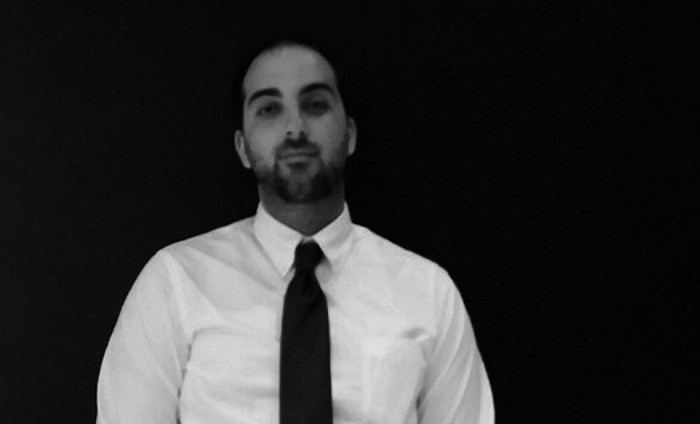
 Tamer Mostafa’s work has been featured in California Quarterly, The Rag Literary Magazine, Poets Espresso Review, Confrontation Literary Magazine, Stone Highway Review, and No Infinite. He was the recipient of the 2011 CSU Sacramento Bazzanella Literary Award in Creative Non-Fiction and the 2013 Lois Ann Latin Rosenburg Prize for Poetry.
Tamer Mostafa’s work has been featured in California Quarterly, The Rag Literary Magazine, Poets Espresso Review, Confrontation Literary Magazine, Stone Highway Review, and No Infinite. He was the recipient of the 2011 CSU Sacramento Bazzanella Literary Award in Creative Non-Fiction and the 2013 Lois Ann Latin Rosenburg Prize for Poetry.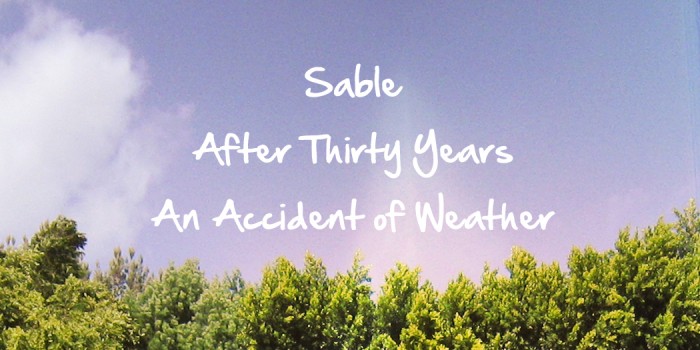
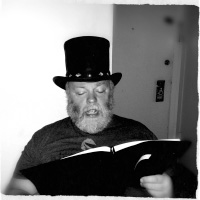 Raised in New Jersey, Robert Lavett Smith has lived since 1987 in San Francisco, where for the past fifteen years he has worked as a Special Education Paraprofessional. He has studied with Charles Simic and Galway Kinnell. He is the author of several chapbooks and two full-length poetry collections, the most recent of which is Smoke in Cold Weather: A Gathering of Sonnets (Full Court Press, 2013).
Raised in New Jersey, Robert Lavett Smith has lived since 1987 in San Francisco, where for the past fifteen years he has worked as a Special Education Paraprofessional. He has studied with Charles Simic and Galway Kinnell. He is the author of several chapbooks and two full-length poetry collections, the most recent of which is Smoke in Cold Weather: A Gathering of Sonnets (Full Court Press, 2013).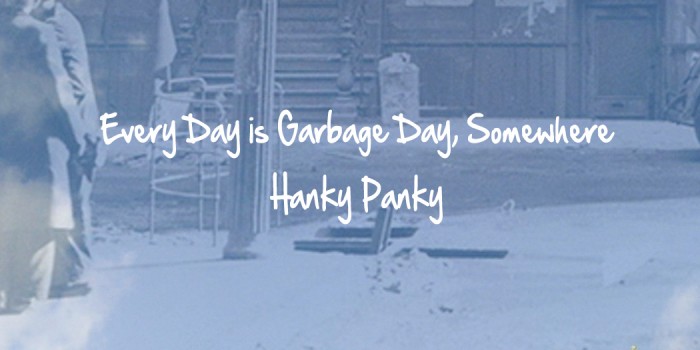
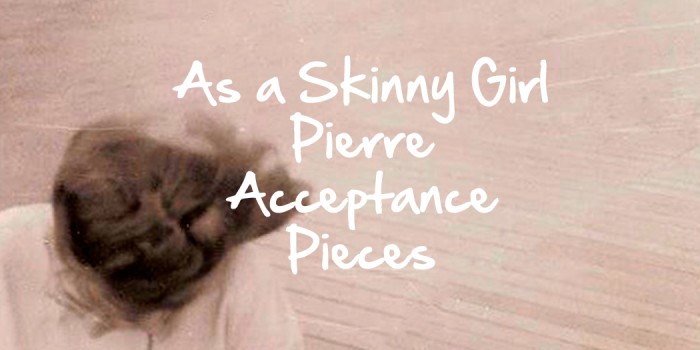
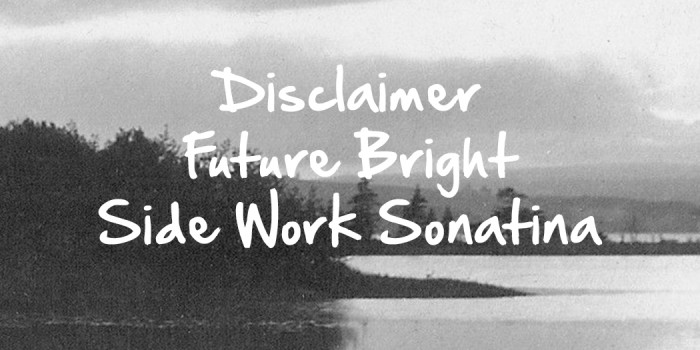
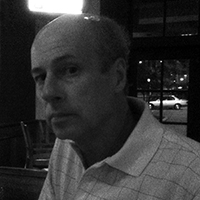 R.A. Allen’s poetry has appeared or is forthcoming in New York Quarterly, Night Train, Mantis, RHINO Poetry, Gargoyle, The Recusant (UK), and elsewhere. His work has been nominated for a Pushcart Prize. He lives in Memphis for the humidity. More at http://poets.nyq.org/poet/raallen
R.A. Allen’s poetry has appeared or is forthcoming in New York Quarterly, Night Train, Mantis, RHINO Poetry, Gargoyle, The Recusant (UK), and elsewhere. His work has been nominated for a Pushcart Prize. He lives in Memphis for the humidity. More at http://poets.nyq.org/poet/raallen











